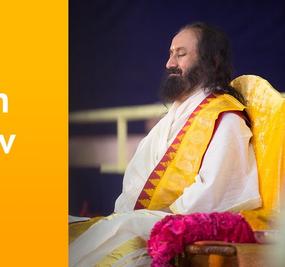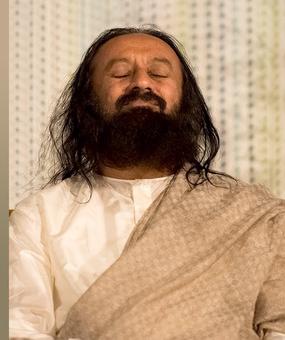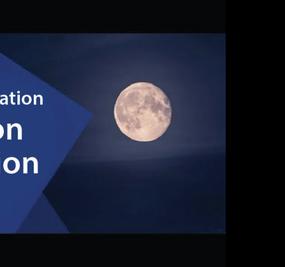Anger, the thunder of distorted feelings
What do you get angry with? People, incidents, situations? You cannot get angry with objects. So, your anger is all directed at people or situations. YOU are also included in those people – either you are angry at yourself, or someone else.
You feel angry because of some weakness. When you want to do something but are not able to do it, then that incapability evokes anger in you.
When you are capable and powerful, why would you feel angry? You never get angry over an ant or a fly. You never get angry with someone or something inferior. We get angry at someone who is greater or mightier than us. We feel angry when we see or find something that is beyond our skills or capabilities. We get angry when we feel that someone does not obey what we say. Anger arises when we think that our words carry far more importance than us. So anger does cause pain when it arises.
It’s important to come out of anger soon
Desire for perfection in speech and action is often the cause of anger. Perfection in action is almost impossible. Only 95 percent perfection is possible in action. Though, perfection in speech and mind is 100 percent possible.
What is the frequency with which you get angry? The frequency of your anger is inversely proportional to your strength. The stronger you are, the less prone you are to anger; the weaker you are, the more prone you are to anger. You need to look at this: Where is your strength? Why are you losing it?
The second factor is your vision, and your in-depth understanding of life and people around you. This also plays a part.
The third is your attachment – attachment evokes anger in you. The degree of attachment – to what you want. So, behind your anger, there is desire. You must recognize that. If it is for your comfort, desire or ego, you have a different reaction. But, if your anger is out of compassion, if your anger has a purpose to set things right, it is different. This sort of anger is not a bad emotion.
Tips to Breaking the cycle of anger
People fight because they feel they are right. This feeling of righteousness gives them the strength to fight. If someone feels they are wrong, they do not have the strength to fight.
This limited and narrow sense of righteousness has created the worst in the world. All the wars of the world have taken place because of it.
If we broaden our vision, and look at the truth impartially, we will see a different picture. Our sense of righteousness is a mental concept; beyond that, is the real cause of any effect. Wisdom is looking into that real and ultimate cause.
Here are some tips for you to break this cycle
1. Treat angry people like firecrackers
Look at an angry person like a firecracker. In Diwali, we light crackers, and then run away, enjoying it from a distance. After some time, it will fizzle out. An angry person is like that.
But, we do not burn crackers inside the house, or keep anything precious near it. So, just see that there are no precious things around angry people.
Without angry people, there is no fun in this world. So save yourself, and watch them from a distance. Do not get involved, and you will have fun!
2. Win over anger with consciousness
When you get angry, and do not express it, you suffocate. On the other hand, when you express it, you feel guilty. So, the key is to rise above both. See life from a different perspective.
Look at your emotions as a decoration – like icing on a cake of different colors and designs. This decoration doesn’t really matter to the substance. Similarly, these emotions should not bind you, or make you feel guilty. This will happen when you grow in your consciousness.
During Navratri, we do satsang, and follow a diet, so that the mind dives into waves of devotion. In this way, we avoid all opportunities of anger and other vices.
3. Use Strength to Cope With Aggression
Why does aggression arise in you? When you think that somebody is bigger than you, you become aggressive, right? Think about it. When somebody is really bigger than you, or they are too small to count, you don’t become aggressive. But, when you think that somebody is on par with you, or only a little bit bigger or smaller than you, you become aggressive. This is because of your ignorance about your own strength. Wake up and see what you are, and with whom you are becoming aggressive.
You do not become aggressive when you want to kill a mosquito! You know that it is just a mosquito, and that it doesn’t amount to much. Similarly, become aware of your strength.
4. A Little Imperfection is Healthy for the Mind
Too much expectation of perfection brings anger and violence in the mind. It becomes difficult to accept imperfection. Sometimes, things don’t go according to plan. One should be ready to handle that.
Give a little space for imperfection; it is necessary. It will bring you more patience. With increased levels of patience, there is less anger, and, with less anger, there will be no violence.
5. Give a Shield of Knowledge to Love
If someone you love does not behave according to your expectations, you get hurt. After all, you are not hurt by some random person walking on the road! But, if a person you love, or you feel close to, does not greet you or smile at you, you feel hurt.
When people feel hurt, they close themselves up, become hard-hearted, and act cruelly.
Love is a fine and delicate emotion; it is easily hurt, and can quickly turn into hatred, anger, blame, grudges, bitterness or jealousy.
How can you save this delicate emotion from getting distorted in our society? Knowledge. It is the right shield to safeguard this love. Knowledge maintains the purity of love, and keeps it away from all sorts of vikaras. The love of saints is always pure because it has the shield of knowledge to protect it.
Also, when you go deep into sadhana, you can experience love at very subtle levels.
It is a sign of foolishness to be angry about something that has happened in the past. You get angry at something which is happening in the present. But reacting to anger with anger…what foolishness! If somebody makes a mistake over and over, you can show anger, but don’t get carried away with it.
Arogya vardhak gussa – Healthy anger is that which stays only as long as a line drawn on water stays.
It doesn’t mean you do not show anger when someone is wrong, but it is unintelligent to get carried away with it. Sadhana protects your mind from any vikara i.e. distortion that takes you away from your self.
When anger is good and necessary
Sometimes it becomes necessary to display some anger. Anger used simply for display should be used as a weapon. So you get angry, but you remain calm and unshaken from within. With such (display of) anger, your blood pressure will not rise, you will not become shaky and heated up.
A mother often scolds her child over something or the other, but at the same time she smiles at her husband. She may scold someone in anger, and smile cheerfully at someone else. But this anger does not trouble her, or give her a headache. It does not ruin her sleep. So being angry for the sake of display is alright.
It is alright to be angry for the sake of someone else’s welfare, but not for your own selfish motives. That will only harm you. Getting angry because someone is insulting you only brings harm to you and no one else. Getting angry at someone in order to stop them from harm is actually beneficial.
Anger that is born of ‘I, Me, or Mine’ is the one that causes pain and frustration. When you realize that someone is being foolish in his ways and then you get angry (to correct them), then such anger is actually beneficial.
Suppressed anger about the past
Anger is not separate energy. It is one energy, which manifests as anger, and as compassion; as love, and as generosity. It is not two different energies. Rather, it is one energy assuming different colors. Just as it is the same electricity that is used for the refrigerator, lights, and fans.
Don’t let yourself think that you have suppressed anger. If you grow in wisdom, and your eyes open to the truth and reality, you will see that your anger of the past was your foolishness and lack of wisdom.
The wise way of dealing with anger
If you express your anger, you feel guilty. If you don’t express it, you feel you have suppressed it. To rise above both, see life from a different perspective – assume a broader outlook.
If you change the context to your life, you will not see life as a struggle. You will see that these emotions don’t really bind you, or make you feel guilty or suffocated. They are only decorations. Decorations, really, don’t matter to the substance that is there. It’s like making different colors on the icing of the cake.
In Hindu mythology, there is a story about Lord Vishnu and his battle with anger. Two demons, Madhu and Kaitabha, born from the dirt of Lord Vishnu’s ear, troubled the lord. Madhu means ‘anger’ and Kaitabha means ‘hatred’. Lord Vishnu fought for a thousand years, but he could not win over them.
So, he called Devi – Divine Consciousness. When consciousness arises, anger and hatred dissolve. With the help of water, Devi destroyed Madhu and Kaitabha. Here, water represents ‘love’. So, with the help of love, consciousness destroyed anger and hatred. When consciousness fills with love, neither anger nor hatred remains – only eternal love remains.
How to raise consciousness?
One kind of anger is that which is expressed with full awareness. The other kind is the one that is without awareness, and with ignorance.
So when you feel anger arising in you, just before that you can feel some sensations in your body, like a tingling sensation on the top of your head, or in the forehead or the back of your head; or you will feel some stiffness at the neck and shoulder region. Observing all those sensations at that very moment is a skill. When you become habitual of observing those sensations, then you can conquer anger very easily. This is why meditation is so important. Anger cannot be tamed by anything other than meditation.
The mechanics of meditation
Earlier when you used to get angry, your anger would last for a long time. If you have started meditating very recently, then you would have noticed that anger still comes, but it subsides quite soon as well. In a matter of four to five minutes your anger disappears, isn’t it so? If yes, then you should see it as a big step in the positive direction.
When you felt angry in earlier days, when you did not meditate, your anger would last for hours, days, months or perhaps even a year. But now that you have started meditating regularly, anger does not stay for long. Why is this so? It is because when anger comes, that moment the attention shifts to the breath and you remember your breath – and this helps to regulate your anger. The experience of past meditation immediately takes you back to a calm and serene state and stops the anger midway itself. Any meditation that you do never goes to waste.
Tips on Anger Management from Gurudev Sri Sri Ravi Shankar
Learn to manage your anger with Sudarshan Kriya in The Art of Living’s Happiness Program.




















